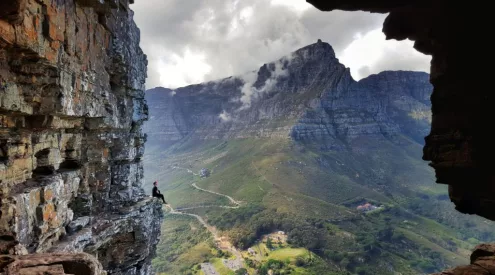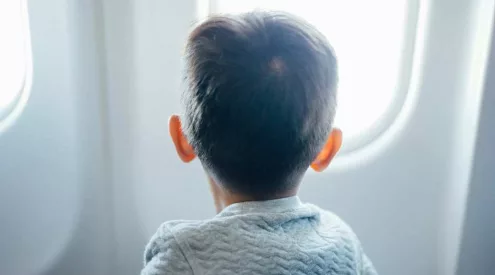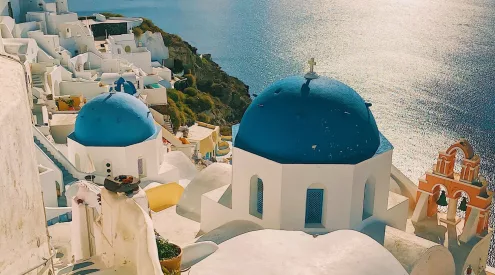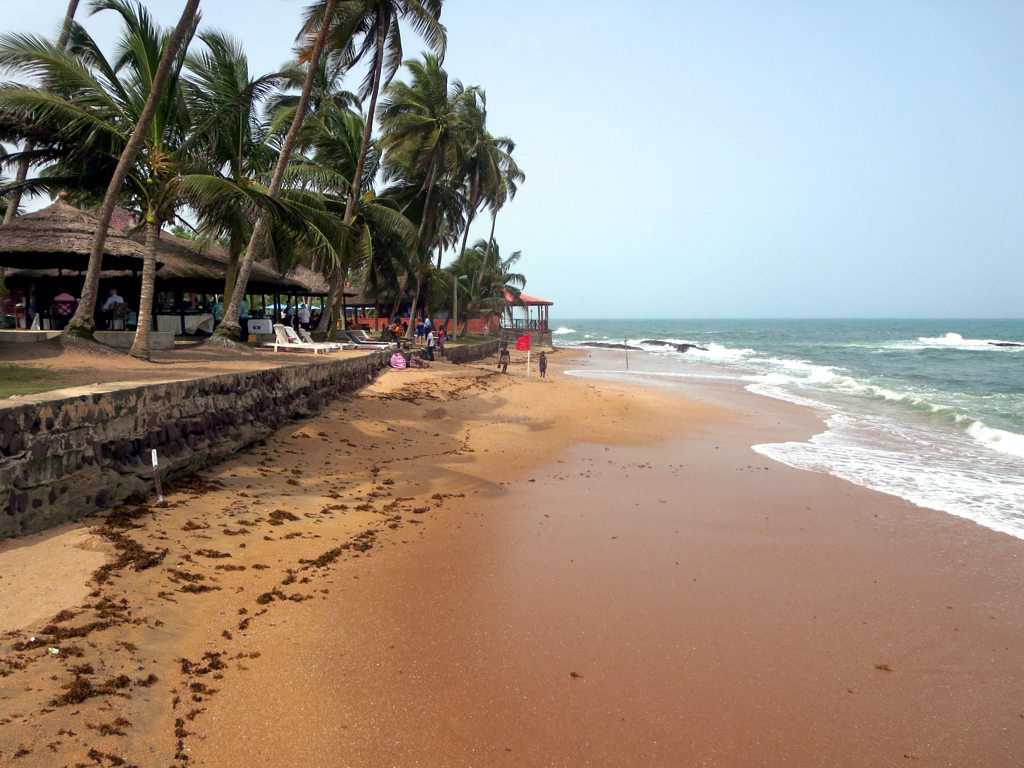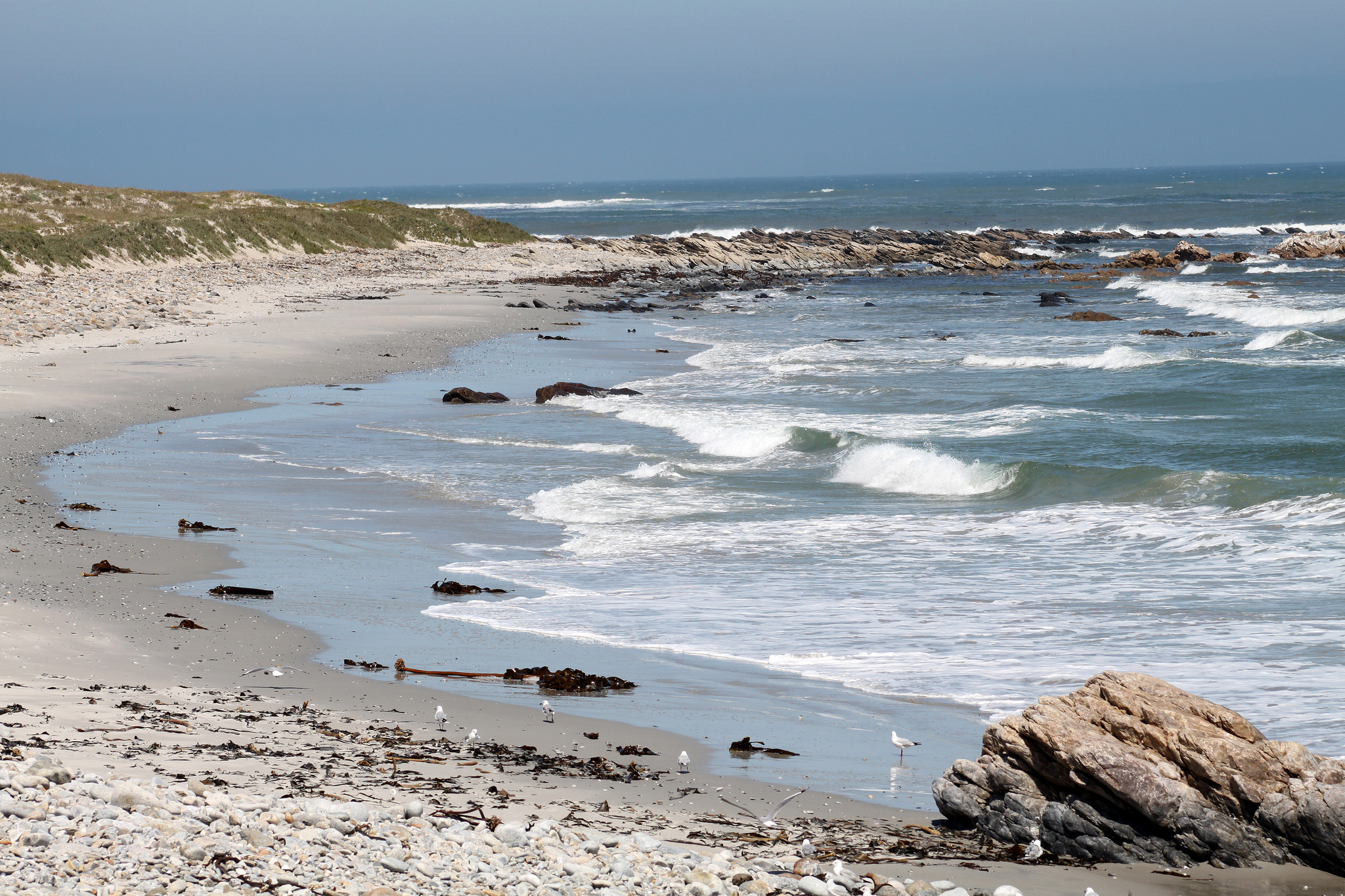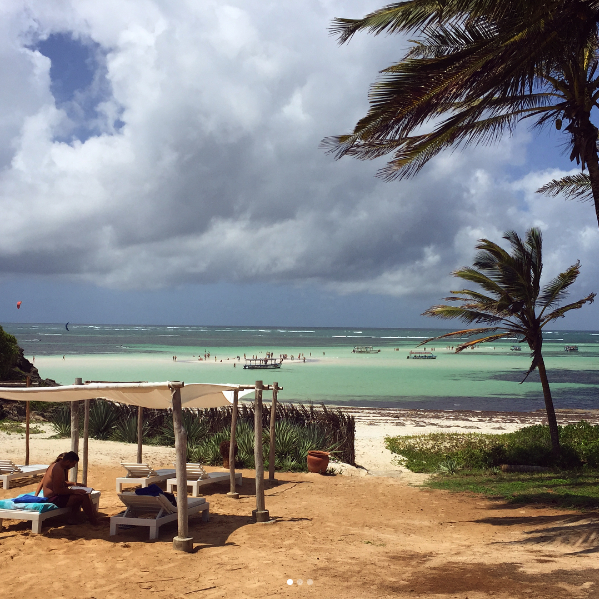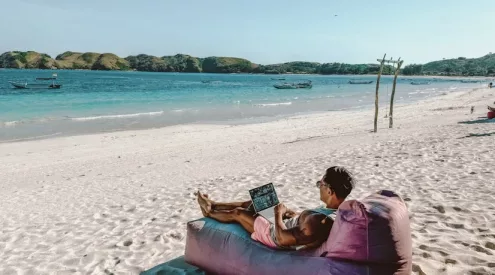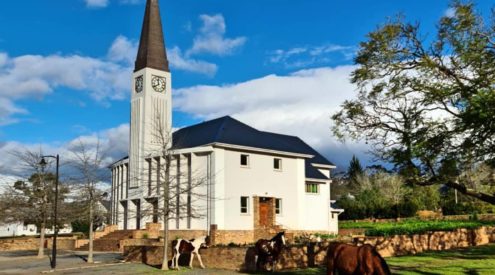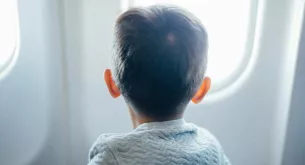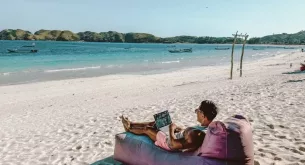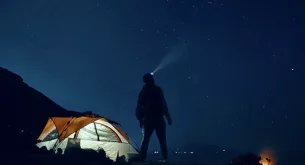In Africa, we have beautiful beaches to boast about. Some are best for surfing, swimming and snorkelling and others simply offer superb sunsets and historic ruins to inspire poetic souls.
1. Tipaza, Algeria
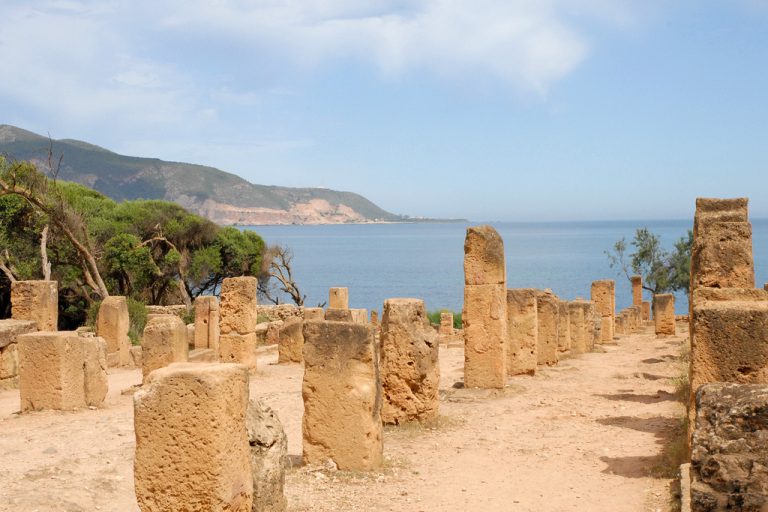
Under the Roman Empire, Tipaza was call Tipasa. It became a UNESCO World Heritage Site in 2002. Photo by Jean-Pierre Dalbera.
Many civilisations have sailed across the silvery blue waters of this Algerian city and left behind traces of their cultures. Tipaza was built upon three hills that tumble down to the coastline.
Its past as a Roman port town can be seen by the remains of amphitheatres, fountains, basilicas and theatres. An ancient harbour is thought to belong to the Phoenicians who arrived before the Romans as they travelled along the North African coast.
Tipaza is about 80 kilometres from Algiers and the hot, dry Mediterranean summer is reason enough to get in the water; but you can also step back in time at the Tipasa Archaeological Park and see Roman bath complexes and mosaics.
2. Chindini Beach, Comoros
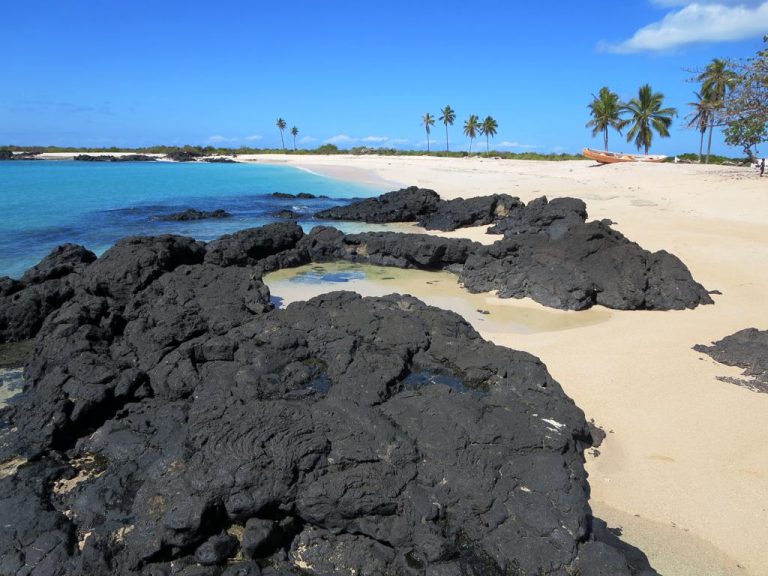
Pahoehoe lava on Chindini Beach. It’s a balsatic lava flow that has a smooth, billowy or ropy surface. Photo by David Stanley.
Africa’s third smallest country has some sweet swimming shorelines to take a dip almost anywhere. At the southern tip of Grande Comore or Ngazidja (as it’s called in Swahili) is Chindini beach.
It rests at the bottom of a large basin and is described as one of Grande Comore’s best beaches. The dark lava that contrasts strongly against the white sand is from Mount Karthala, an active shield volcano. It is 35 kilometres from Moroni, the capital city of Comoros.
It’s also a snorkelling and scuba diving destination. There are seagrass beds, mangroves and coral reefs along the edges of the volcanic Comoros islands making it the perfect place for your aquatic adventures.
3. Bojo Beach, Ghana
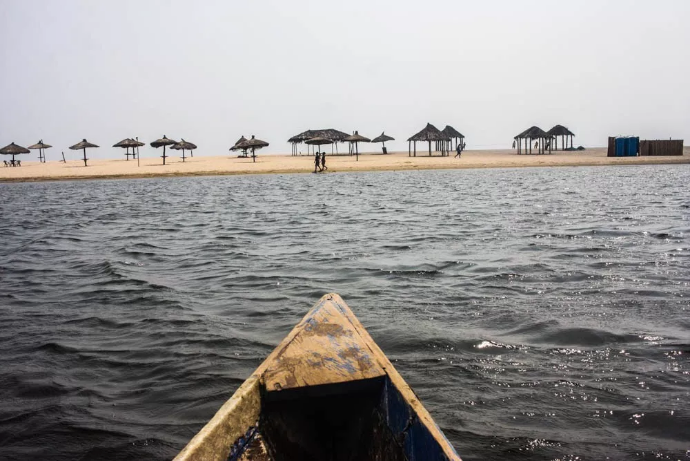
Bojo Beach is about 457 metres long. You can hire a jet ski or surf and kite surf to explore these waters. Photo by Myweku Tastes.
More than 20 kilometres west of Accra is a small beach that gives the impression of being on an island. It’s quieter than its neighbour, Kokrobite Beach and you have to cross the Densu River from the mainland to get to it.
Bojo Beach is located on a man-made sandbank that has fresh water on one side and salty water on the other. You have to pay an entrance fee (about R30), but it’s the kind of beach you can chill at all day. The artificial island is known for it’s fusion of Ghanaian and Caribbean cultures; there are huts dotted along the beach and music all in keeping with the island vibe.
4. Watamu, Kenya
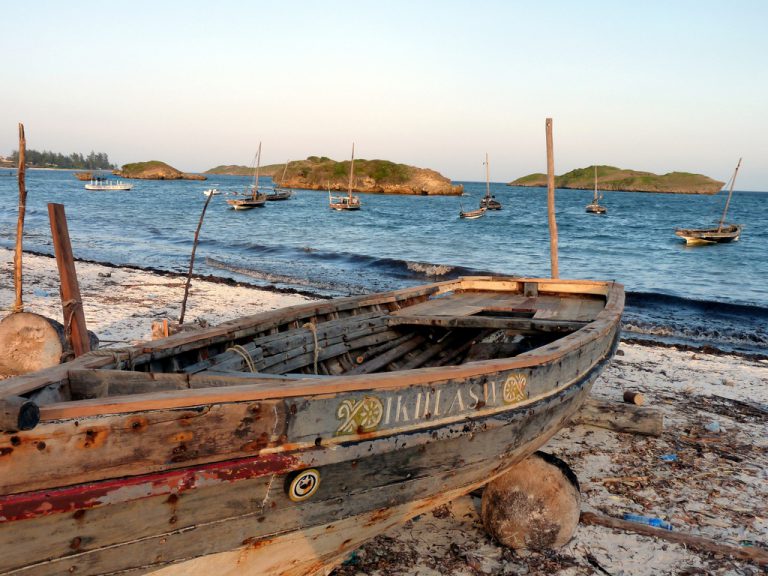
Watamu has some of the best snorkelling and diving in East Africa. There are over 100 types of coral. Photo by Cordelia Persen.
An endless ribbon of velvety white sand is exactly what you’ll find at the beach in Watamu. It’s a coastal town 105 kilometres north of Mombasa that is situated in the heart of two protected areas, Watamu Marine National Park and Arabuko Sokoke National Park. Offshore are coral gardens and at low tide, if you walk about one kilometre to reach an island chain, you’ll find small bird species too.
The coastal environment is also varied with tropical rainforest, bays, mangroves and low cliffs.
5. Asilah, Morocco
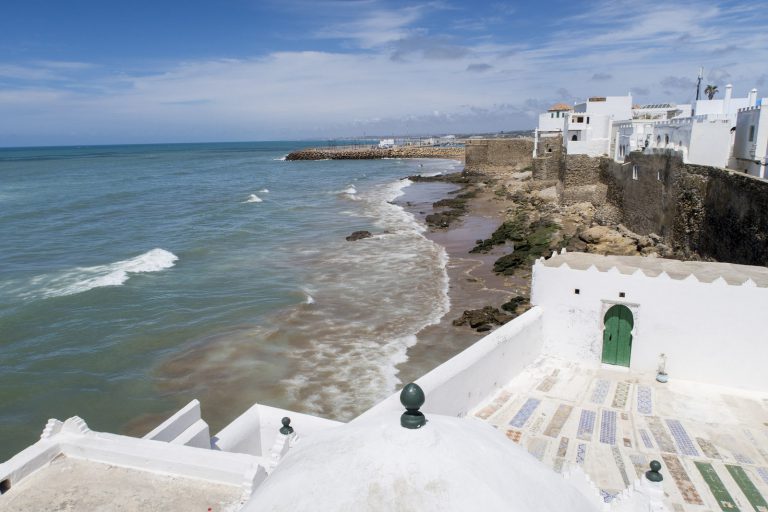
The best time to visit Asilah is in autumn and spring when it’s not too hot and there are fewer tourists around. Photo by Ramon Cutanda Lopez.
There are more than a few good reasons to treasure Asilah in Morocco: it’s been described as an ‘under-the-radar’ destination and also has safe swimming and surf beaches. The fishing village was once a Spanish territory and also has a natural harbour.
Paradise Beach is said to be the best of Asilah and you can ride a camel along the shore in true North African fashion. It isn’t easy getting to this beach because it’s in a bay at the end of a lengthy dirt road, but it could be worth escaping the crowds. If you forgot your 4×4 you can access the beach on a horse and cart.
6. Cabo Ledo, Angola

The Atlantic Ocean where Cabo Ledo’s coastline is, borders Quicama or Kissama National Park, which was successfully rehabilitated after the Angolan Civil War. Photo by Felipe Miguel.
Google ‘Cabo Ledo’ and you’ll find articles praising it as a destination in the surfing world. It’s 120 kilometres south of Luanda and has one of the world’s longest point breaks. What’s more, Cabo Ledo has waves that are suitable for beginners. It’s also relatively untouched and pretty much empty except for the souls who know about it. For world-class waves to surf, look no further than Angola.
7. Goree Island, Senegal

Goree is from the Dutch phrase ‘Goe-ree’ which means ‘good harbour’. Photo by Allison German
Three kilometres off the coast of Dakar is Goree Island. This 900 metre-long, 300 metre-wide island is a piece of history and is thought to have been one of the main centres in the Atlantic slave trade. The House of Slaves on the island is a memorial and museum and Goree is a UNESCO World Heritage Site.
The beach is tiny and there is a jetty surrounded by gentle waves that is safe for kids to jump off of. The sheltered bay is also said to be a great swimming spot.
8. Island of Mozambique, Mozambique

The island’s architecture is a combination of traditional African in the south (Macuti/Reed Town) and European and Arab in the north (Stone Town). Photo by Berenice Charles
Ihla de Moçambique (Island of Mozambique) in Nampula is a community built on a coral reef that has buildings that go back to the 16th century.
Mozambique’s namesake was the capital city during Portuguese rule and Arabs traded on it before the arrival of Europeans. At just three kilometres in length and 500 metres in width, the island is a UNESCO World Heritage site.
If you want to swim, it’s best to avoid the area closest to the shore – take a kayak or dhow and go out far or swim near the fort. Otherwise bike around the island to enjoy the glimpses of its historical past.
Also read: Ilha de Mocambique: the past comes alive off the coast of Africa.
9. Nouakchott Beach, Mauritania

About 1.2 million tonnes of fish are caught annually along Mauritania’s coastline. Photo by sulii_pearce.
Nouakchott means ‘the place of winds’ in Berber and it lies just five kilometres from the capital city of Nouakchott. Everyday is a ‘beach’ day because of the heat and sun but it isn’t ‘the place of the winds’ for nothing. Strong winds blow frequently and the sea’s currents can be quite fierce.
The beach’s main drawcard is Port de Pêche, Nouakchott’s fishing port. You can’t miss the multi-coloured pirogues of their artisanal fishing industry. Watching the fishermen drag in their heavy nets is a fascinating site for many tourists. The best time to witness this is the late afternoon.
10. Hondeklipbaai, South Africa
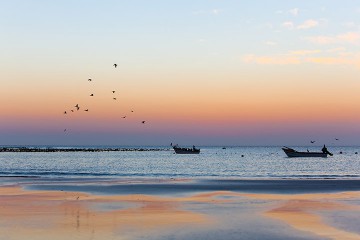
Hondeklipbaai’s small natural harbour was established as a trading station in 1846 where copper ore was exported to the UK. Sunset at Hondeklipbaai.
There are many treasures along the West Coast and if you head into the Northern Cape you’ll find the diamond. Hondeklipbaai’s unusual name means ‘Dog Stone Bay’ and is inspired by a dog-shaped rock that sits near the town’s police station.
Hondeklipbaai is a village with a humble fishing heritage. You’ll find shipwrecks such as The Aristea and The Jahleel, a peaceful 14-kilometre shoreline and tidal pools. If you’ve ever been to Paternoster, you’ll love this town that’s along the Namaqualand coast. Among many other things, its known for having the best views of sunset.
Also read: a road trip up the West Coast off the N7.
11. Dakhla Beach, Western Sahara
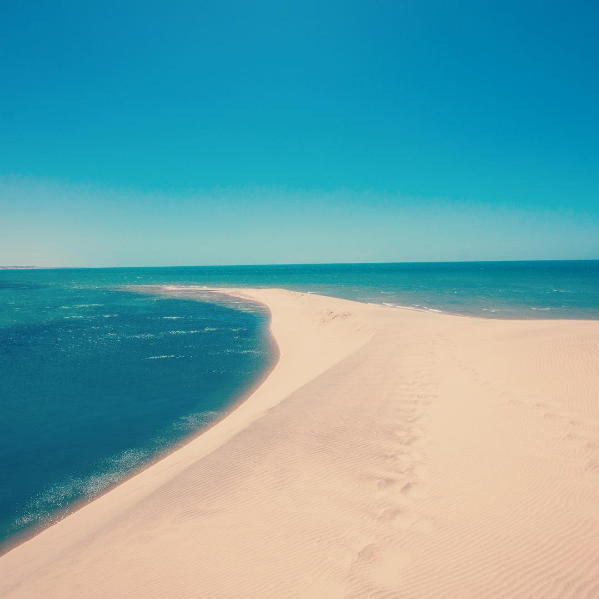
The shallow water of the lagoon of Dakhla also makes it suitable for snorkelling. Photo by Dakhla Kite Surf Hotels.
Western Sahara is technically not a recognised country and there is conflict between Morocco and the Sahrawi Arab Democratic Republic for ownership, but this hasn’t slowed tourism down in the city of Dakhla. Beyond the dunes separating it from the Atlantic Ocean, is a 24-kilometre lagoon that is a highly popular kitesurfing destination.
Peak season is from April to October and Dakhla’s year-round strong winds make it the best location for kitesurfing. It’s mainly deserted as there are very few beach-goers and it’s quite a mission getting there due to military checkpoints along the way.
Are there other beaches on our continent that people should know about? Let us know in the comments.

